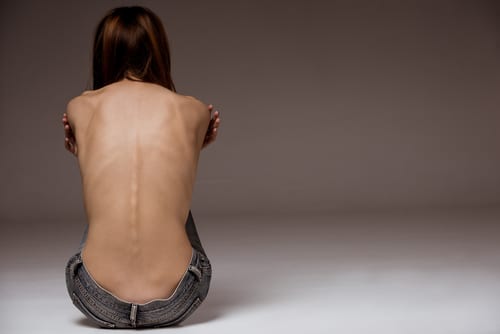Body shaming is a nationwide epidemic that desperately needs to be addressed. At our office, we hear firsthand many of the horror stories that people go through when they are body shamed. The multitude of social media networks and online anonymity seem only to exacerbate this problem. The repercussions of this hideous practice have profound psychological implications that can impact someone for life. Worst of all, nearly everyone is guilty of body shaming at some point in their life, and the problem persists for both men and women.

Consequences of Body Shaming
Pain
Body shaming can be perceived as just a joke by the shamer, but it is one of the major causes of depression, anxiety, and eating disorders. Those who are deemed too skinny can become obsessed with packing on muscle and start using unhealthy methods to gain weight. When someone is called fat, they can develop anorexia or bulimia. Besides the potential harm that is done to the person who is shamed, the shamer also suffers. They have to live with the knowledge that they caused another person pain. It is well known that shaming makes both the shamer and the shamed feel horrible. It is time we realize that our society does not need any more body dysmorphia or mental illness induced by negativity.

Body Shaming Hinders Open Dialogue
It is important to be able to have open discussions with our loved ones about our health, but body shaming creates another barrier to these vital conversations. For example, shame makes it very difficult for us to discuss obesity and healthy life choices when we are worried that we may upset someone that we care about deeply. Discussion about someone’s body should be held in private among family and close friends. It is not anyone else’s business to comment on another person’s body. If we must talk about another person’s weight or shape, it should come from a place of compassion and genuine caring for their health. No one should ever be malicious in their speech towards another’s body.
Beauty In A Box
Body shaming limits our perception of beauty to only an aesthetic rather than a state of being. This narrow, limiting idea is an often unaddressed aspect of body shaming, but it could be the most important one. We should all strive to look and feel our best. That is common sense. Still, beauty is not only skin deep. Beauty starts from within and emanates outward in our physical expressions. Body shaming damages the truest beauty inside ourselves.
Conclusions
In short, we all know that body shaming is wrong. It wouldn’t hurt anyone to take a moment to think before typing that comment, or uttering a statement. Let’s all commit ourselves to bringing others up rather than dragging them down. The future is all about improving together and bringing more positivity into the world.
The offices of Dr. Hochstein are all about body-positivity. If you’re interested in a judgment-free consultation, then give us a call at 305-931-3338. We welcome people of all shapes and sizes.